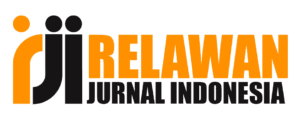Post-Electoral Political Exclusion Following the 2024 Simultaneous Regional Elections in West Nusa Tenggara (NTB)
Abstract
This study critically investigates the contours of post-electoral political exclusion in West Nusa Tenggara (NTB) following Indonesia’s 2024 Simultaneous Regional Elections, situating the phenomenon within broader democratic deficits in representation and deliberation. Anchored in the theoretical intersection of elite domination and bureaucratic politicization, the research explores how exclusionary practices are institutionally embedded through strategic civil service reshuffling and symbolic power consolidation by victorious political coalitions. Employing a qualitative, critical case study approach, the study draws on in-depth interviews, participatory observation, and document analysis to construct a nuanced understanding of exclusion mechanisms. Key findings reveal that the electoral triumph of the KIM PLUS coalition catalyzed a reconfiguration of local power alliances, marginalizing opposition actors and transforming bureaucratic appointments into instruments of political reward. The post-election vacuum in over ten strategic governmental roles became an arena for political capitalization, wherein meritocratic procedures were eclipsed by informal networks, loyalty politics, and clientelism. Furthermore, the mutation of educational leadership positions, under the pretext of pedagogical reform, demonstrated the infiltration of partisan logic into ostensibly neutral institutions. These dynamics erode institutional integrity, compromise administrative neutrality, and precipitate a broader crisis of democratic legitimacy. The research concludes that post-electoral exclusion in NTB functions not merely as a residual anomaly of electoral cycles, but as a systemic manifestation of symbolic domination, structurally reproducing elite control while hollowing out spaces for genuine participation. This phenomenon poses a critical threat to democratic resilience and necessitates urgent normative and institutional reforms to safeguard inclusive governance.
References
Abdallat, Y., Suifan, T., Oklah, K., Sweis, G., & Sweis, R. (2020). The impact of human resource management practices on organizational performance in construction companies in Jordan. International Journal of Business Innovation and Research, 1(1), 1. https://doi.org/10.1504/ijbir.2020.10025591
Adhikari, A., Derashid, C., & Zhang, H. (2006). Public policy, political connections, and effective tax rates: Longitudinal evidence from Malaysia. Journal of Accounting and Public Policy, 25(5), 574–595. https://doi.org/10.1016/j.jaccpubpol.2006.07.001
Amalia Yunia Rahmawati. (2020). Disertasi - Patron. July, 1–23.
Andika, R., Putera, R. E., & Indraddin. (2022). Analisis Pengisian Jabatan Esselon IV Komisi Pemilihan Umum Kota Padang. In Jurnal Niara (Vol. 15, Issue 2). https://doi.org/10.31849/niara.v15i2.8839
Asal, V., Findley, M., Piazza, J. A., & Walsh, J. I. (2016). Political Exclusion, Oil, and Ethnic Armed Conflict. Journal of Conflict Resolution, 60(8), 1343–1367. https://doi.org/10.1177/0022002714567948
Bauhr, M., Charron, N., & Wängnerud, L. (2019). Exclusion or interests? Why females in elected office reduce petty and grand corruption. European Journal of Political Research, 58(4), 1043–1065. https://doi.org/10.1111/1475-6765.12300
Baynton, D. C. (2013). The New Disability History: American Perspectives: Disability and Justification of Inequality in American History. The Disability Studies Reader, 17–33. http://www.uua.org/sites/live-new.uua.org/files/documents/bayntondouglas/justification_inequality.pdf
Beall, J., & Piron, L.-H. (2005). DFID Social Exclusion Review. The London School of Economics and Political Science & Overseas Development Institute, January 2005, 71. https://www.odi.org/sites/odi.org.uk/files/odi-assets/publications-opinion-files/2301.pdf
Boelens, R., Hoogesteger, J., Swyngedouw, E., Vos, J., & Wester, P. (2016). Hydrosocial territories: a political ecology perspective. Water International, 41(1), 1–14. https://doi.org/10.1080/02508060.2016.1134898
Brechenmacher, S., & Hubbard, C. (2020). How the coronavirus risks exacerbating women’s political exclusion. Blog Post at the Carnegie Endowment for …, November, 1–8. https://www.ndi.org/sites/default/files/Brechenmacher_Hubbard_Women_Exclusion.pdf
Casero-Ripollés, A., Sintes-Olivella, M., & Franch, P. (2017). The Populist Political Communication Style in Action: Podemos’s Issues and Functions on Twitter During the 2016 Spanish General Election. American Behavioral Scientist, 61(9), 986–1001. https://doi.org/10.1177/0002764217707624
Cederman, L. E., Weidmann, N. B., & Gleditsch, K. S. (2011). Horizontal inequalities and ethnonationalist civil war: A global comparison. American Political Science Review, 105(3), 478–495. https://doi.org/10.1017/S0003055411000207
Cederman, L. E., Wimmer, A., & Min, B. (2010). Why do Ethnic groups rebel? New data and analysis. World Politics, 62(1), 87–119. https://doi.org/10.1017/S0043887109990219
Cederman, L., Gleditsch, K. S., & Buhaug, H. (2013). Inequality, Grievances, and Civil War. September, 1–46.
Choi, S. W., & Piazza, J. A. (2016). Ethnic groups, political exclusion and domestic terrorism. Defence and Peace Economics, 27(1), 37–63. https://doi.org/10.1080/10242694.2014.987579
Chow, P. N. P. (1974). An improved toluene/Triton-based liquid scintillation system for counting 14C-labeled compounds at ambient temperature. Analytical Biochemistry, 60(1), 322–328. https://doi.org/10.1016/0003-2697(74)90161-4
Citizens & Sportsmen: Fútbol & Politics in 20. (2011). September 1973.
Cutts, D., Goodwin, M., Heath, O., & Surridge, P. (2020). Brexit, the 2019 General Election and the Realignment of British Politics. Political Quarterly, 91(1), 7–23. https://doi.org/10.1111/1467-923X.12815
Dianti, Y. (2017). Metode Penelitian Kuantitatif. In Angewandte Chemie International Edition, 6(11), 951–952. http://repo.iain-tulungagung.ac.id/5510/5/BAB 2.pdf
Dotson, K. (2014). Conceptualizing Epistemic Oppression. Social Epistemology, 28(2), 115–138. https://doi.org/10.1080/02691728.2013.782585
Ekström, H., Krzyżanowski, M., & Johnson, D. (2023). Saying ‘Criminality’, meaning ‘immigration’? Proxy discourses and public implicatures in the normalisation of the politics of exclusion. Critical Discourse Studies, 22(2), 183–209. https://doi.org/10.1080/17405904.2023.2282506
Engelhart, M. D., & Moughamian, H. (1968). Book Reviews : Book Reviews. Educational and Psychological Measurement, 28(3), 951–951. https://doi.org/10.1177/001316446802800332
Faccio, M., & Lafayette, W. (n.d.). D - : a.
Fan, J. P. H., & Wong, T. J. (2011). Politically-Connected CEOs, Corporate Governance and Post-IPO Performance of China’s Partially Privatized Firms. SSRN Electronic Journal, December. https://doi.org/10.2139/ssrn.642441
Fauzi, L. M., Asmara, M. G., & Zunnuraeni. (2019). Pengangkatan Jabatan Pimpinan Tinggi Pratama Sekretaris Daerah Kabupaten Lombok Barat. Jurnal Ilmiah Hukum De’Jure: Kajian Ilmiah Hukum, 4(1), 63–83.
Fauziyah Aulia Rishanti, Puguh Santoso, A. P. U. (2022). Penyelesaian Konflik Sosial Di Sumbawa Berdasarkan Undang-Undang No 7 Tahun 2012 Mengenai Penanganan Konflik Sosial (Studi Kasus : Konflik Antara Suku Samawa Dengan Suku Bali Tahun 2013. Tarombo, 3(1), 1–12.
Haider, H. (2022). Addressing political exclusion of ethnic minorities , IDP ’ s , and refugees in the Eastern Neighbourhood.
Helsper, E. J. (2012). A Corresponding Fields Model for the Links Between Social and Digital Exclusion. Communication Theory, 22(4), 403–426. https://doi.org/10.1111/j.1468-2885.2012.01416.x
Hooker, J. (2005). Indigenous inclusion/black exclusion: Race, ethnicity and multicultural citizenship in Latin America. Journal of Latin American Studies, 37(2), 285–310. https://doi.org/10.1017/S0022216X05009016
Jagers, J., & Walgrave, S. (2007). Populism as political communication style: An empirical study of political parties’ discourse in Belgium. European Journal of Political Research, 46(3), 319–345. https://doi.org/10.1111/j.1475-6765.2006.00690.x
Johnson, C., Jones, R., Paasi, A., Amoore, L., Mountz, A., Salter, M., & Rumford, C. (2011). Interventions on rethinking “the border” in border studies. Political Geography, 30(2), 61–69. https://doi.org/10.1016/j.polgeo.2011.01.002
Kinowska-Mazaraki, Z. (2021). The polish paradox: From a fight for democracy to the political radicalization and social exclusion. Social Sciences, 10(3). https://doi.org/10.3390/socsci10030112
Kurniawa, A., & Usman, &. (2020). Studi Diagnostik Pembelajaran Pendidikan Dasar di Kabupaten Lombok Tengah, Provinsi Nusa Tenggara Barat.
MacDonald, R. (2008). Disconnected Youth? Social Exclusion, the ‘Underclass’ & Economic Marginality. Social Work & Society, 6(2), 236–248. https://ejournals.bib.uni-wuppertal.de/index.php/sws/article/view/45/358%0Ahttps://ejournals.bib.uni-wuppertal.de/index.php/sws/article/view/45
Mangare, R. C. W., Dotulong, L. O. H., Walangitan, M. D., Jabatan, P. P., Dan, M., Terhadap, K., Kerja, S., Pada, P., Kesatuan, B., Dan, B., Mangare, R. C. W., Dotulong, L. O. H., & Walangitan, M. D. (2023). KOTA MANADO THE EFFECT OF JOB PROMOTION , MUTATION AND COMPENSATION ON EMPLOYEE MORALE AT THE NATIONAL AND POLITICAL UNITY AGENCY OF MANADO CITY Jurnal EMBA Vol . 11 No . 4 November 2023 , Hal . 1522-1531. 11(4), 1522–1531.
Mbah, P. O., Nwangwu, C., & Ugwu, S. C. (2019). Contentious elections, political exclusion, and challenges of national integration in Nigeria. Cogent Social Sciences, 5(1), 1–21. https://doi.org/10.1080/23311886.2019.1565615
Rifai, & Haeril (2024). Dilema Etis dan Imparsialitas Birokrasi pada Pilkada Serentak Kota Bima 2024. 293–303.
Moore, F. J. W. (2009). Book Review – POPULATION REVIEW. 48(1), 135–137.
Nadzri, M. M. N. (2018). The 14th General Election, the Fall of Barisan Nasional, and Political Development in Malaysia, 1957-2018. Journal of Current Southeast Asian Affairs, 37(3), 139–171. https://doi.org/10.1177/186810341803700307
Nyberg, D. (2021). Corporations, Politics, and Democracy: Corporate political activities as political corruption. Organization Theory, 2(1). https://doi.org/10.1177/2631787720982618
Paskarina, C. (2016). Pilkada Serentak, Eksklusi Partai Politik, dan Masa Depan Politik Representasi. The Politics, 2(1), 24–38.
Penerapan, D., & Fifo, M. (2023). 1* , 2 1,2. 1992, 17–23.
Pitofsky, R. (1979). Political Content of Antitrust. University of Pennsylvania Law Review, 127(4), 1051–1075.
Pratama, D. H., Wibowo, G. D., & Purnomo, C. E. (2023). Implementasi Penyetaraan Jabatan Administrasi ke Dalam Jabatan Fungsional pada Pemerintah Daerah (Studi di Pemerintah Daerah Provinsi NTB). Indonesia Berdaya, 4(3), 931–942. https://doi.org/10.47679/ib.2023507
Radcliffe, S., & Webb, A. (2016). Mapuche youth between exclusion and the future: protest, civic society and participation in Chile. Children’s Geographies, 14(1), 1–19. https://doi.org/10.1080/14733285.2014.964667
Rifai, R., Kamaluddin, K., & Hidayat, R. (2024). Exploring the roots and solutions of maladministration, power abuse, or corruption in contemporary Indonesian villages. Pertanika Journal of Social Sciences and Humanities, 32(3), 1115–1140. http://www.pertanika.upm.edu.my/
Tauhid Tauhid, & Gufran Gufran. (2019). Intervensi Politik Dalam Mutasi Pejabat Birokrasi Pemerintah Kota Bima. Jurnal Ilmu Administrasi Negara, 16(1), 36–45. https://doi.org/10.59050/jian.v16i1.15
Van Deth, J. W. (2014). A conceptual map of political participation. Acta Politica, 49(3), 349–367. https://doi.org/10.1057/ap.2014.6
Wajdi, F., Seplyana, D., Juliastuti, Rumahlewang, E., Fatchiatuzahro, Halisa, N. N., Rusmalinda, S., Kristiana, R., Niam, M. F., Purwanti, E. W., Melinasari, S., & Kusumaningrum, R. (2024). Metode Penelitian Kuantitatif. In Jurnal Ilmu Pendidikan (Vol. 7, Issue 2).
Weaver, V. M., & Lerman, A. E. (2010). Political consequences of the carceral state. American Political Science Review, 104(4), 817–833. https://doi.org/10.1017/S0003055410000456
Wimmer, A., Cederman, L., & Min, B. (2009). Andreas Wimmer, Lars-Erik Cederman, and Brian Min Ethnic politics and armed conflict. A configurational analysis of a new global dataset. Published in the. American Sociological Review, 74(2).
Wodak, R. (2015). The_Politics_of_Fear_What_Right_Wing. 0–24.
Copyright (c) 2025 Journal of Governance and Local Politics (JGLP)

This work is licensed under a Creative Commons Attribution-NonCommercial-NoDerivatives 4.0 International License.










